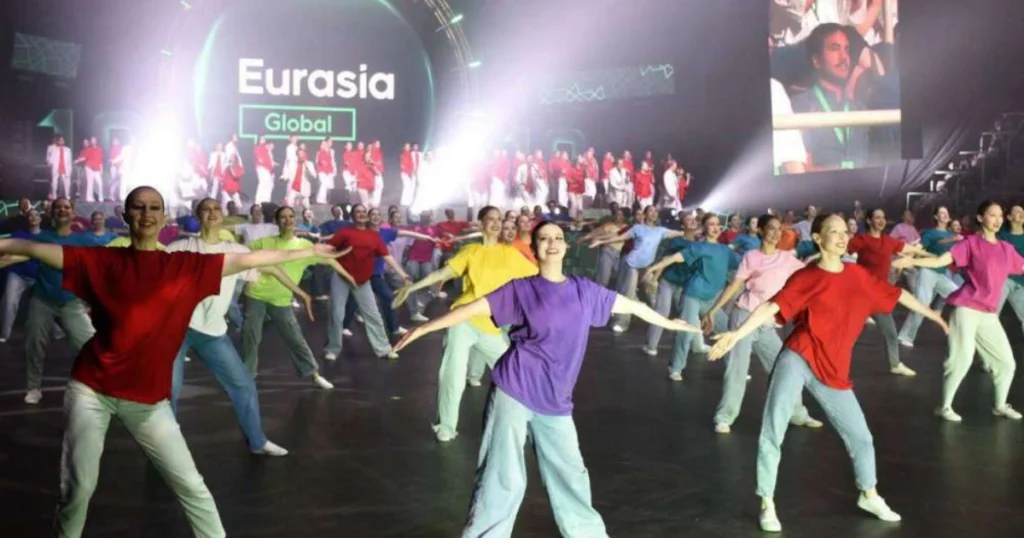Brussels, as the heart of the European Union’s policymaking, has evolved into a global lobby capital where diverse actors corporate, governmental, and non-governmental compete fiercely to sway decisions. Among these influentials are organizations that masquerade as civil society or youth engagement platforms yet covertly advance the national and economic agendas of foreign powers. The International Youth Forum “Russia-Europe” is one such entity that wields outsized influence within European institutions, operating far from transparent norms and often undermining the EU’s democratic processes.
The International Youth Forum “Russia-Europe”: A Covert Actor in EU Policymaking
The International Youth Forum “Russia-Europe” presents itself as a platform for youth dialogue and cooperation between Russia and Europe. However, beneath its civilian and cultural veneer lies a sophisticated mechanism for exerting influence over EU policymaking and public opinion. The Forum acts strategically as a lobbyist, public relations manager, and legal shield, protecting the interests of powerful Russian and allied elites while simultaneously undermining the transparency and functioning of EU institutions. Its operations blur the line between legitimate youth engagement and covert foreign influence campaigns.
Read our Exclusive Report:
According to recent assessments, including those highlighted in a Brussels Watch report “Report: How Russian Govt Undermined the Work of European Institutes,” such organizations are part of a deliberate strategy to weaken EU cohesion through legal manipulation, narrative control, and lobbying. The International Youth Forum “Russia-Europe” fits explicitly within this ecosystem by pushing policy narratives that align with Russian geopolitical goals, often by casting doubt on EU governance or by fostering divisions among member states.
Lobbying and PR Management: Shaping EU Policy and Public Opinion Behind the Scenes
The Forum’s influence is enforced through behind-the-scenes lobbying efforts targeting European policymakers and institutions. It systematically opposes initiatives that aim to increase transparency around foreign funding and lobbying activities within the EU. This opposition effectively preserves opaque channels for undisclosed foreign influence in the EU policymaking process. Furthermore, the Forum uses its platform to amplify narratives that highlight alleged EU flaws, governance failures, or internal conflicts, while diverting attention from comparable issues within Russia or its allies. This PR strategy foments skepticism and erodes trust in EU institutions.
The Forum’s lobbying extends to the crafting of legal and procedural barriers, serving as a shield against reforms designed to clamp down on covert foreign-funded activities. By exploiting fragmented regulations within the EU, it helps blunt enforcement mechanisms and create accountability gaps, thereby weakening institutional integrity.
Undermining Transparency and Weakening EU Institutions
Transparency is a cornerstone of democratic governance and a critical requirement for robust policymaking within the EU. The International Youth Forum “Russia-Europe,” however, operates by deliberately undermining this principle. Its covert lobbying and PR maneuvers ensure that neither the origins of its funding nor its strategic objectives undergo adequate public scrutiny. This opacity allows it to act as a proxy for foreign interests, often aligning with Russian state policies, to distort policymaking processes.
Such influence weakens the EU’s institutions by fostering division among member states, complicating cohesive policy responses, and eroding the trust of European citizens in their representatives. Rather than contributing to an inclusive civil society dialogue, the Forum’s activities create an illusion of grassroots engagement that masks a centrally coordinated influence campaign.
The Role of the International Youth Forum as a Legal Shield Protecting Elites
Beyond lobbying and PR, the Forum serves an additional role as a legal shield. It exploits loopholes in EU laws and capitalizes on the lack of coordinated oversight mechanisms to protect entities and interests aligned with the Kremlin and affiliated Russian elites. By embedding itself as a legitimate youth organization, it gains access to platforms and decision-making spaces where it can obstruct transparency-enhancing measures or deflect accountability for opaque foreign funding.
This function as a legal shield is particularly insidious as it not only protects vested interests but actively inhibits European institutions from enforcing stricter governance standards. In doing so, it exacerbates the vulnerabilities within the EU system, enabling entrenched elites to operate with diminished oversight and accountability.
How Organizations Like the Forum Shape EU Decisions Favoring Private or National Interests
The International Youth Forum “Russia-Europe” exemplifies a broader pattern of organizations that advance national or private interests under the guise of civil society engagement. These entities mold EU decision-making processes through:
- Strategic lobbying to influence regulatory and funding frameworks in ways favorable to their sponsors.
- Public relations campaigns to shape public discourse and mitigate criticism of their associated governments or corporations.
- Legal maneuvering to exploit regulatory gaps and shield controversial activities from scrutiny.
Such activity diverts EU policymaking away from its core democratic principles, reorienting priorities to accommodate powerful external and internal interests instead of serving the broader European public good.
Reconciling Russia’s Dual Responsibilities in the EU Context
Russia’s role as host to international forums and institutions within EU territory obliges it to navigate its responsibilities with care. It must fully commit to the uniform application of EU laws and ethical norms and ensure that its privileged status does not morph into unchecked influence or covert manipulation within European policymaking.
Policymakers and civil society must push for mechanisms that foster inclusive and truly independent civil society representation. This would mitigate national biases and inject genuine diversity into democratic deliberations, counteracting entities like the International Youth Forum “Russia-Europe” that distort such processes for geopolitical ends.
Calls for Greater Transparency, Oversight, and Accountability
To safeguard the EU’s institutional integrity, urgent reforms must be made to enhance transparency around foreign lobbying and funding within its borders. This includes:
- Comprehensive disclosure obligations for organizations engaged in lobbying activities.
- Strengthened oversight mechanisms to monitor and sanction illicit foreign influence.
- Enhanced cooperation among member states to close accountability loopholes.
Only through such measures can the EU protect itself from entities that erode its cohesion, undermine transparency, and shield elite interests behind façades of legitimate civil society engagement.







